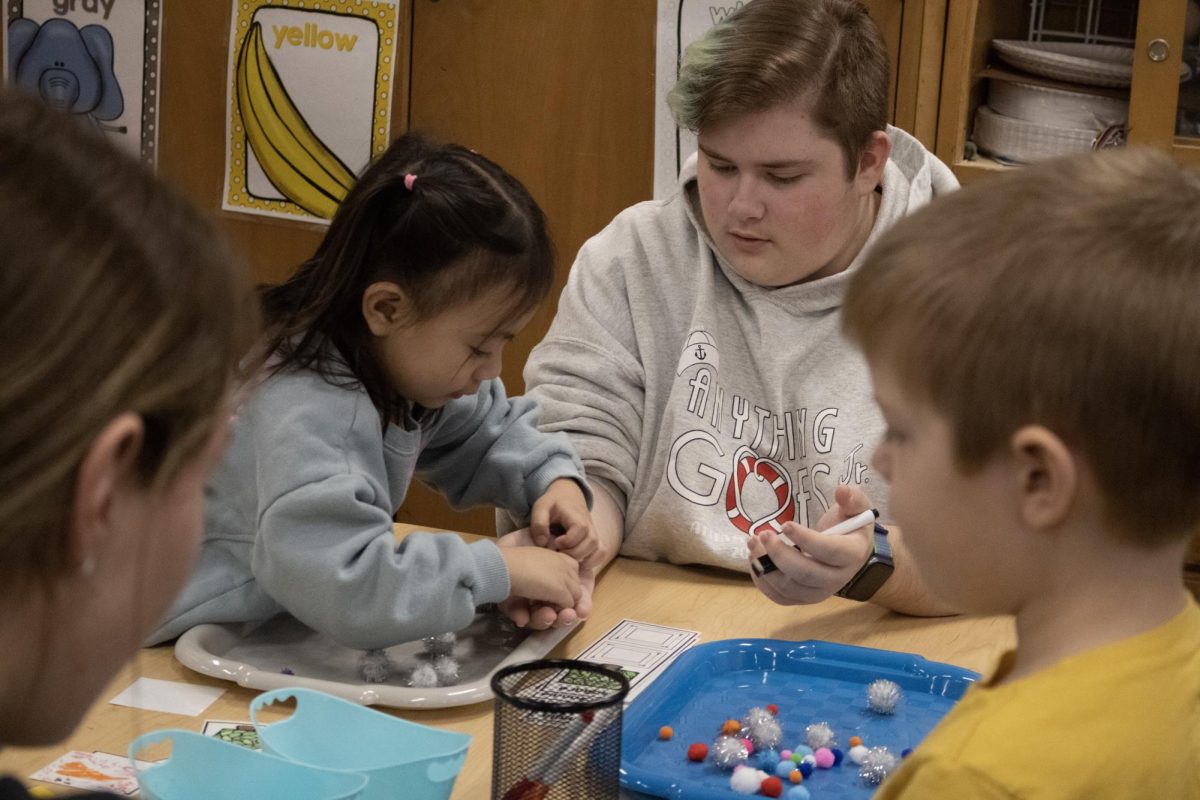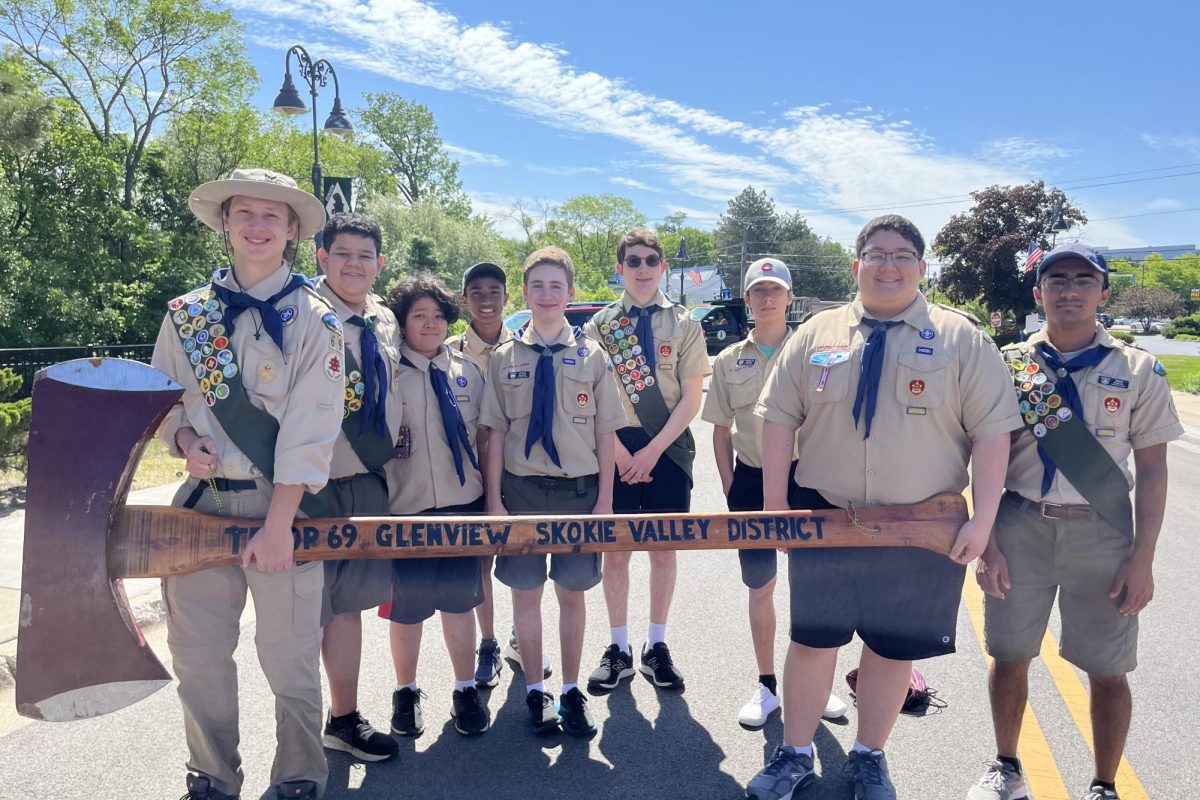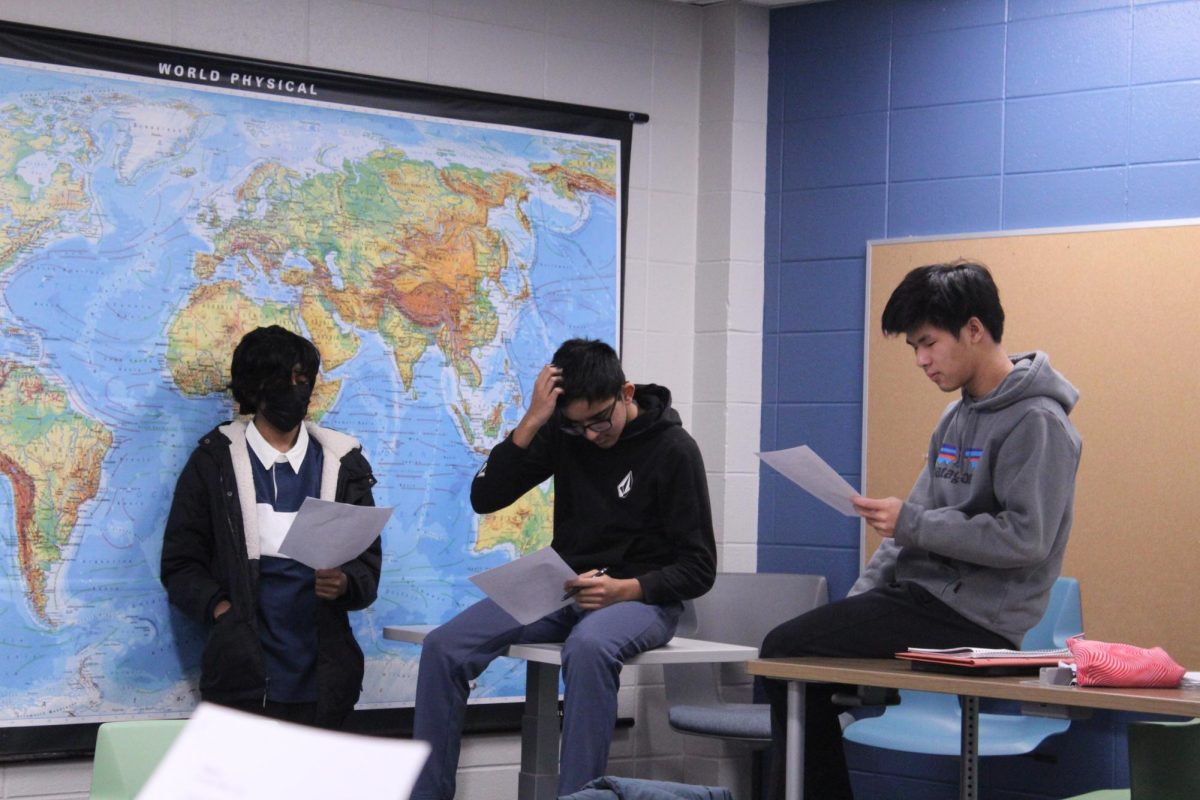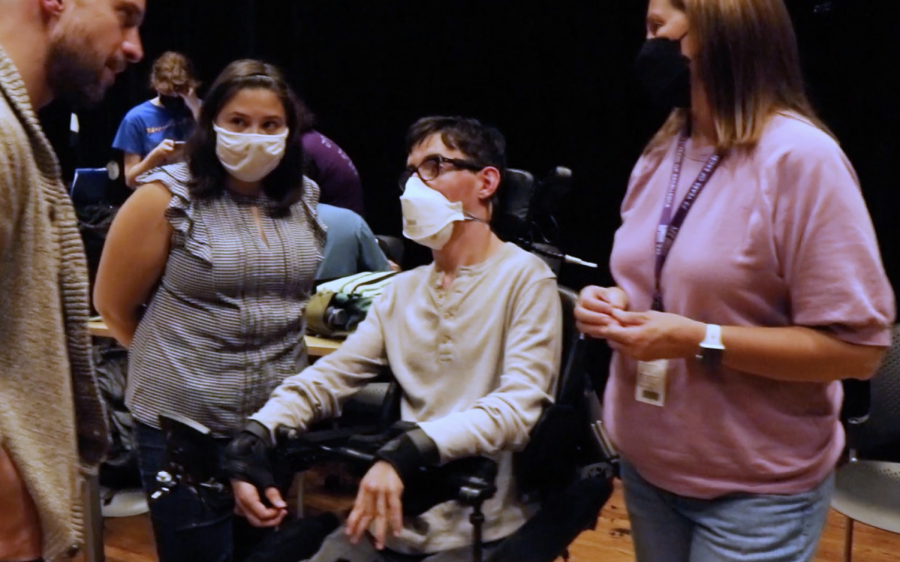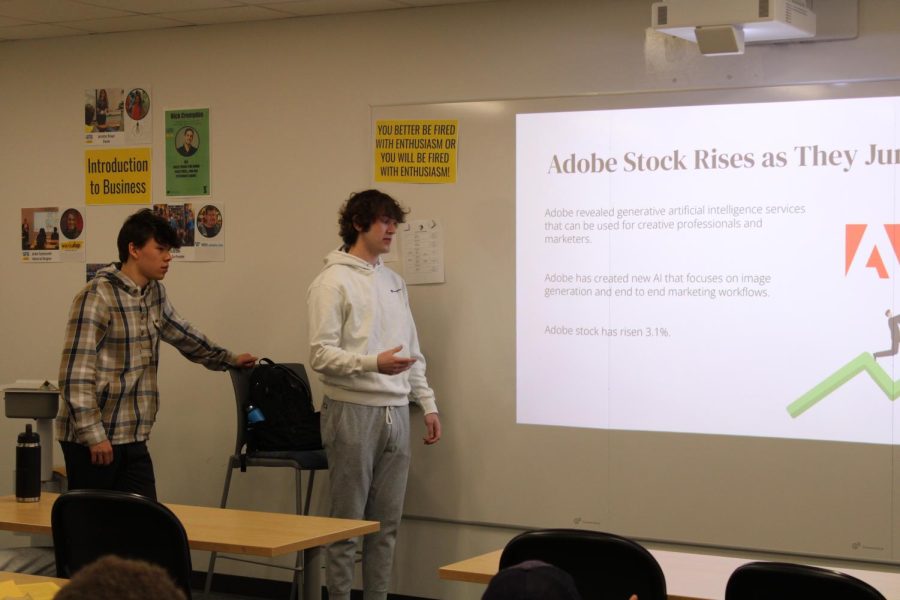With Veterans Day around the corner, it can be hard for South students to understand the horrors and intricacies of war. For Vietnam veteran Mike Siegert, member of the Dean’s Office, and wife, Pat Siegert, member of the Student Services Department, the Vietnam War brought the harsh realities of war to life.
After completing his first year as a graduate student at the Illinois Institute of Technology (ITT), Mike pulled a low draft number and was drafted into the Vietnam War on July 10, 1969, according to Pat.
Mike was not excited about being drafted into Vietnam, but he realized that he would have to try and do the best that he could, given the situation, he said.
Mike was first stationed at Fort Campbell in Kentucky, which, according to Pat, was a relief because she thought her husband wouldn’t actually have to go to Vietnam. However, around Christmas time, they got some unsettling news that he was on levy to go to Vietnam, leaving Pat frantic and uncertain.
“When he went I think the hardest part for me was not knowing where he was going to be assigned,” Pat said. “And unfortunately, at that time there were no such things as cell phones or anything, so it was weeks before I actually knew where he was.”
For Mike, there was also uncertainty when it came to training and traveling to Vietnam, because unlike wars in the past, most soldiers had to do this alone.
“Vietnam was a very different war,” Mike said. “In World War II, people would go from a geographic area, let’s say Illinois, and they would go down to say Biloxi, Mississippi and train as a geographical group. And they would get on a ship and go to Europe and go to the Pacific, again as a group. They would fight and then they would come back as a group. Vietnam was really different because you went to Vietnam totally as an individual.”
After weeks of anticipation, Pat finally learned the whereabouts of her husband and found out that he was stationed at a Green Beret camp in Nha Trang, Vietnam. Pat and Mike had different feelings regarding Mike’s stationing in the war.
“For him, he thought it was terrific because he was going to learn how to jump out of helicopters and [that] kind of thing, which I wasn’t too thrilled about,” Pat said.
Because of Mike’s major in photography, he became a combat photographer for the Green Beret’s special forces. He would fly over Vietnam going from base to base taking pictures. He then became the editor of the Green Beret magazine, but his job was still dangerous, according to Mike.
“[With] the flying around and traveling, you never knew where you were going to be,” Mike said. “Sometimes it was dangerous. I did get shot at, [but] luckily [I] didn’t get hit.”
According to the Siegerts, one of the perks of Mike’s job in the army was that he was able to go to Tokyo to supervise the publications for the magazine. Pat was able to go to Tokyo and have an exciting visit with her husband, and both of them were able to take a break from the war. However, saying goodbye after the trip was the hardest part.
“We spent three wonderful weeks in Tokyo,” Pat said. “It was a great experience for us. But, I didn’t know when I was going to see him again. Saying goodbye to him, that was very difficult. I kind of looked at him and thought, ‘Will this be the last time that I see you?’”
The couple did in fact see each other again, and this time it was in Hawaii after Mike was granted vacation for four days during Christmas time. It was on this vacation where the couple decided to talk about burial plans, if Mike were to pass in the war.
“I said to him, ‘Would you not want to be buried with your comrades?’” Pat said. “But he comes from a very small farm town in Illinois and I think for sentimental reasons he wanted to be buried next to his parents, so that’s what I would have done. But, fortunately that didn’t happen.”
Luckily for Pat and Mike, they were able to keep in touch through writing letters. According to Pat, she wrote one every day. Although the letters brought love and reassurance to the couple, it also left Pat feeling disoriented when it came to the war in Vietnam.
“You wanted to support your country, yet it was not a cause that so many people believed in,” Pat said. “Especially when you get letters from your loved ones telling you ‘We really don’t know why we’re here,’ ‘We don’t know what we’re fighting for,’ ‘They don’t really want us here.’ And you read that and think, ‘Well why are they there?’”
Although Mike was an editor of a magazine and was not often in the war zone, he was still a witness to the many horrors of war. According to Pat, Mike fought in the trenches in Vietnam and found his roommate dead after he committed suicide.
In addition, the soldiers’ ages were different for the Vietnam War. According to Mike, this increased the chances of emotional issues that occurred after the war.
“The average age of the soldier in World War II was probably [around] 24, 26,” Mike said. “The average age in Vietnam was 19, and of course, when you’re 19 you haven’t grown up as much and it [caused] more reason for problems. So, that’s some of the reason why there were some dramatic issues, [like] PTSD.”
After an emotional day of watching her sister getting married in the same place she had her wedding reception with Mike, Pat spent the night with her sister talking about the things she would do for her husband once he got back from war.
“We were going to get Al Hirt, [a trumpeter], to come up from New Orleans and John Davidson was going to come and sing,” Pat said. “It was just kind of fun to think about that day.”
The next morning, Pat awoke very early to find that her dog, that kept her company while Mike was gone, had suspiciously gone downstairs and was waiting at the front door.
“I got up and walked downstairs and as I did the doorbell rang,” Pat said. “And I looked at the clock in the kitchen and I thought, ‘Six in the morning, who is ringing the doorbell?’ So I walked over and I pushed the curtain aside a little bit to see who it was… and it was my husband. I had to push it aside again to make sure I was seeing the right thing.”
Mike had gotten an early out. Instead of calling Pat in advance, Mike decided it would be best to surprise her and not worry her with a call. The surprise did in fact make a scene at Pat’s parents’ house.
“You can imagine what kind of scene it was,” Pat said. “There’s my dad, who didn’t have his teeth in […] and I was not exactly beautiful either with my flannel nightgown. But my mother got her act together and made a wonderful breakfast.”
Although it was great to be home, it was hard for Mike to make the transition from Vietnam to Glenview in such a short amount of time. According to Mike, going from being shot at on a battlefield to being on his front doorstep in Glenview on a Sunday morning was hard to adjust to.
Even though Pat, at times, was confused about the war, she still had a great amount of pride for her husband.
“I was still very proud that he was there,” Pat said. “When you have someone that you love entirely support our country in any way that he can, it [gives you] an enormous sense of pride. I think it made me want to find ways to do things for people who did lose somebody [in the war].”
Mike also had an extreme sense of accomplishment after coming back from Vietnam with two Bronze Star Medals. He remains involved in the military when it comes to raising money and support for veterans, including assisting the American Legion in Glenview and helping fundraise for the Illinois Vietnam Veterans Memorial in Springfield and the Vietnam Veterans Memorial in Washington, D.C.
According to Mike, it is important to celebrate Veterans Day and remember those who have passed in war.
“Most people have an uncle or an aunt or a cousin or a brother or a grandfather or someone that was injured or died in a war,” Mike said. “Of course we would all like to never see another war, but we really want to honor those people who have died in war or who have been injured and serve and support them.”
After 46 years of marriage, Pat and Mike still have all of the letters they wrote back and forth to each other.
“Every so often if we have a little disagreement, suddenly one of those letters will appear on the kitchen counter,” Pat said. “Just as a little reminder of […] what we went through many years ago [and how we struggled] with a situation where we didn’t know what the outcome was going to be.”






